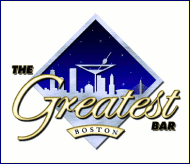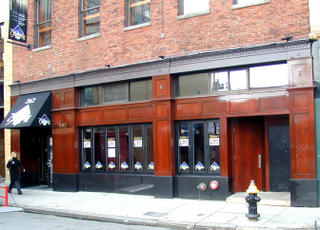"THE GREATEST BAR" Double Entendre Argument Loses Appeal Before TTAB
In the eleventh citable decision of 2005, the Board affirmed a Section 2(e)(1) mere descriptiveness refusal of the mark THE GREATEST BAR for restaurant and bar services. In re The Place, Inc., 76 USPQ2d 1467 (TTAB 2005).

The Board observed that "[l]audatory terms, those that attribute quality or excellence to goods or services, generally are deemed to be merely descriptive" under Section 2(e)(1), citing CAFC decisions involving THE ULTIMATE BIKE RACK and THE BEST BEER IN AMERICA. Therefore, it wasted little time in finding THE GREATEST BAR to be a laudatory mark.
Of more interest to the Board was Applicant's argument that THE GREATEST BAR is not merely descriptive because it is a double entendre, "i.e., it has a second meaning which is not merely descriptive of applicant's restaurant and bar services." According to the Applicant, the second meaning arises from the "trade dress, theme and motif" that Applicant will employ: "a restaurant and bar room experience featuring the most notable people, places, and events in the history of the town in which the establishment is located." For example the bar in Boston will feature:
"the 'greatest' people, places, and events in Boston's history, such as the Blizzard of '78 (asserted to be the greatest snowstorm in Boston's history); Ted Williams (asserted to be the greatest hitter in Boston baseball history); Aerosmith (asserted to be the greatest rock and roll band from Boston); and John F. Kennedy (asserted to be the greatest politician from Boston)." [TTABlog query: What? No Bucky Dent, the greatest nemesis in Boston sports history?]
The Board was "not persuaded." It disagreed with Applicant's premise that "the alleged second meaning of THE GREATEST BAR will be readily perceived by purchasers." [The Board declined to reach the issue of whether the alleged second meaning of the mark is itself merely descriptive of a bar that features the "greatest" elements of the city in which it is located.]
"The multiple interpretations that make an expression a 'double entendre' must be associations that the public would make fairly readily. A mark thus is deemed to be a double entendre only if both meanings are readily apparent from the mark itself. If the alleged second meaning of the mark is apparent to purchasers only after they view the mark in the context of the applicant's trade dress, advertising materials or other matter separate from the mark itself, then the mark is not a double entendre. See In re Wells Fargo & Co., 231 USPQ 95 (TTAB 1986)." [Emphasis in original].
The Board also noted that, although Applicant's current intention or practice is to use its "greatest" theme, the recitation of services is not limited to such use, and thus Applicant would be free to change its theme and motif at any time, leaving it with a registration for a mark with a single, laudatory meaning.

In sum, the Board found that THE GREATEST BAR "is not a double entendre," but rather is laudatory and merely descriptive of Applicant's services.
Text Copyright John L. Welch 2005.




0 Comments:
Post a Comment
<< Home